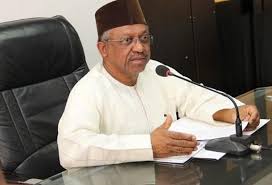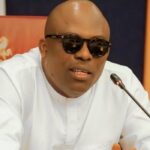By Ojoma Akor (Abuja) Clement A. Oloyede & Zahraddeen Y. Shuaibu (Kano) Lami Sadiq (Kaduna) & Risikat Ramoni, Lagos
As the COVID-19 pandemic and ongoing industrial action by the Nigerian Association of Resident Doctors (NARD) continue to deny many Nigerians access to healthcare, experts have offered suggestions on how to eliminate health disparities and inequities to ensure a fairer and healthier world for every Nigerian.
The theme of this year’s World Health Day (which is marked April 7 every year) is ‘Building a fairer, healthier world for everyone’..
Dr Iwalokun Bamidele, head of central research laboratory at the Nigeria Institute of Medical Research (NIMR), Lagos, said that there is so much disparity in health in the world at the moment.
He said that malaria affects children and pregnant women more in the last 40 years despite efforts of different bodies to curtail it. Aside malaria, the researcher said that COVID-19 has reversed some of the health gains, and plunged more people into poverty and insecurity.
During the onset of the pandemic in Nigeria, the poor were the most affected, he said.
“We are yet to address the determinants for this disparity. If we want to build a fairer world that is devoid of malaria, we must address the social determinants associated with having more children and pregnant women coming down with malaria and leading to deaths,” he said.
He said that children who were usually affected by malaria were from poor backgrounds and have no access to preventive measures due to the area they live. Such children are geographically disadvantaged and in hard-to-reach areas..
He said, “In order to address the social determinants, we must create equal access to preventive measures. The child of a rich man who falls ill due to malaria would easily get treated in a health facility and recovers faster due to the food and fruits taken thereafter..
“Meanwhile, that is not the case for children from poorer homes. There must be equal access to health before everyone in the world would have a fairer and healthier world. There has to be research into socio-economic determinants of health disparity in the incidence and death from the disease.
“What is responsible for health disparity are socio-economic and educational determinants. Studies have shown that women who were most affected with malaria during pregnancy were those who were socio-economically and socio-educationally disadvantaged and who have little knowledge about malaria risks and malaria preventive measures.”
To build a fairer world, he said there is a need to understand the health disparities, take stock of health challenges and identify the social determinants.
Dr Bamidele cited Lassa fever as another health issue in Nigeria affecting many states, adding that there is regional disparity as it affects some regions more than the others.
The ongoing COVID-19 vaccination is another important health issue begging for attention, he said.
“If we do a demography of those that have received this vaccine, there is a need to note what category they belong to, vaccination service disparity and why some people are not taking the vaccine, and creating awareness that the vaccine will work and it is safe for use, that is the only way to build a fairer world towards promoting equity in COVID-19 vaccination.”
He said that solutions to health problems would be easier when there is available data from the marginalized people.
“In addition, strengthen universal health coverage principle so as to meet the Sustainable Development Goal (SDG) 3, health for all by 2030,” he said.
The molecular biologist also said that antimicrobial resistance is a public health problem at the moment and is also a huge barrier to effective health care solutions; not only from human beings but also from plants and animals.
Asked what other stakeholders in the health sector can do to help bridge the widening gap in health service delivery, Dr. Sabitu Y. Shanono, Director-General of the Kano State Agency for Control of AIDS (KSACA) and also the deputy coordinator of Kano State Task Force of COVID-19 Technical Response Team said the first thing to do is to direct our resources to more effective programs and services towards effective and efficient healthcare delivery.
He said, “I think that is a call for most of our partners. Secondly, in terms of the state government, I think ensuring that we fight this COVID-19 to the last will actually give you that confidence that yes the health system is quite robust, and we can continue to access service without fear of the unknown.”
He said COVID-19 brought so many changes to the healthcare system and healthcare delivery. “There were times when going to clinics were as fearful as you can think of and then there were times when clinics were boycotted by patients because of the fear of COVID-19.
“Socially we have seen the effect looking at how we were locked down in our houses and how our many economic activities are affected in terms of businesses and more.
“But we can say that gradually we picked up and we were able to restore much of the healthcare services that have been provided especially for Kano State. But, by and large, COVID-19 has actually affected all aspects of our endeavours,” he said
Kaduna State Commissioner of Health, Dr. Amina Mohammed Baloni said since its emergence in late 2019, the coronavirus pandemic has triggered what is considered the worst public health crisis in a century.
She said the theme for this year’s World Health Day, ‘building a fairer, healthier world’ highlights the right to health for all people, access to health services where they need it, and when they need it irrespective of economic and social condition.
She said one of the inequities that disrupt access to health is gender.
“Females are more likely to have less access to health services, cultural practices also make women more vulnerable to health challenges such as harmful birth practices, the need to obtain permission before accessing care and lack of economic power in women also impact on access to care,” she said.
She said another one is the rural-urban divide, adding “Health facilities tend to be more available in the urban than in rural areas.”
The Kaduna health commissioner said another source of inequity is poverty.
She said, “There is a vicious circle that operates between ill health and poverty. Poor people cannot afford services and this, in turn, exacerbates ill health, what little income-poor people have is spent to get services leading to deeper poverty.
“No one should get sick and die just because they are poor, or because they cannot access the health services they need. To this end, the state government has a health insurance scheme which aims to protect citizens from catastrophic expenditure and has earmarked 1% of the consolidated revenue fund to cover vulnerable populations like the poor and elderly, this ensures citizens can access care in an equitable manner.
“The government is also working on those social determinants of health to improve health and wellbeing of its citizens.”
Dr Baloni said there is still a long way to go until everyone – no matter who they are, where they live, or how much money they have – have access to these basic human rights.
“But we are working hard to reduce the inequities leaving no one behind in keeping with the central principle of the 2030 Agenda for Sustainable Development.
“We must all work together to combat iniquities and discriminatory practices so that everyone can enjoy the benefits of good health, no matter their age, sex, race, religion, health status, disability and gender,” she added.




